Number of People Vaccinated Has Surpassed One Million, Says PM
ZAGREB, 15 May 2021 - The number of people vaccinated against COVID-19 in Croatia has surpassed one million today, Prime Minister Andrej Plenković tweeted on Friday, calling on all citizens to be vaccinated so that the pandemic could end.
He thanked healthcare workers, the Croatian Institute of Public Health, the Health Ministry and all services "who are working daily on the implementation of the vaccination plan," he said.
"I call on everyone to be vaccinated as it's the safest and fastest way to end the pandemic," he added.
For more about Covid-19 in Croatia, follow TCN's dedicated page.
No More AstraZeneca in Croatia as of Summer as EU Contract Expires
May the 13th, 2021 - There will be no more AstraZeneca in Croatia as of summer, more precisely as of next month, as the contract between the European Union (EU) and AstraZeneca is set to expire. Here are what those who have received their first dose of AstraZeneca in Croatia need to do in order to get their second one.
As Poslovni Dnevnik writes, after June 2021, the European Union's contract with AstraZeneca will expire and there will be no new orders for these vaccines until further notice, European Internal Market Commissioner Thierry Breton recently revealed.
There will, however, continue to be enough doses of this vaccine for those who have to receive a second dose of AstraZeneca in Croatia, the director of the Croatian Institute of Public Health, Krunoslav Capak, assured on Monday. The answer from the Croatian Institute of Public Health says that despite the expiration of the EU's contract with AstraZeneca looming, all 2.7 million doses of this vaccine ordered last year will arrive in Croatia as normal and at intervals.
This was also confirmed by Croatian Health Minister Vili Beros, 24sata reports.
"Through the joint procurement of the European Commission (EC), a total of 2.705 million doses of the AstraZeneca vaccine were ordered for Croatia, and this agreement is still in force. In case of possible changes, we'll be sure to inform the public following the decision of the European Commission,'' Beros explained when conveying the information he received on the topic of AstraZeneca in Croatia.
There should be no problems for anyone needing their second dose of AstraZeneca in Croatia, because the country has used only 258 thousand of the 460 thousand doses of this vaccine received so far.
The director of the Andrija Stampar Institute, Zvonimir Sostar, added that 21 thousand additional doses of the AstraZeneca vaccine will arrive in Croatia this week and he believes that enough will still be found for all those requiring their second dose.
On Monday, he says, fewer people came to the Zagreb Fair (Zagrebacki Velesajam) for their first dose of vaccination against the novel coronavirus than were invited. He has stated that he believes that this is precisely because of the unpopularity of this particular vaccine and that owing to that, enough of it will be left to provide people with their second dose when that time comes.
For all you need to know about coronavirus specific to Croatia, including travel, border and quarantine rules, as well as the locations of testing centres and vaccination points up and down the country, make sure to bookmark our dedicated COVID-19 section and select your preferred language.
Zagreb AstraZeneca Stocks Used as Vaccination Pace Picks Up
May the 10th, 2021 - Those of us who live in the City of Zagreb have obviously not been too fussed by the often less than positive reports about AstraZeneca side effects, be they exaggerated or not, as the Zagreb AstraZeneca doses are used up on residents.
As Poslovni Dnevnik writes, more of Zagreb's citizens were vaccinated with the AstraZeneca vaccine than with Pfizer according to the director of the Dr. Andrija Stampar Institute, Zvonimir Sostar, as Zagreb AstraZeneca vaccines dry up. At the level of the whole of the Republic of Croatia, things are the other way around. Although Croatia ordered far more AstraZeneca vaccines, much more money was spent on Pfizer. More than 600,000 doses of Pfizer were used, nearly 300,000 AstraZeneca vaccines were administered, with the rest being Moderna and Johnson & Johnson.
A total of 1.1 million doses were used, of which the first dose was received by 617,000 people, with 250,000 receiving both doses. This means that in the whole of Croatia, only about five percent of the population has been immunised so far, and another 344,494 people have officially been recorded as having become unwell with the novel coronavirus, which is almost nine percent of the population, 24sata writes. There hasn't yet been any sort of officiall made study that says how many people have actually acquired immunity to the virus by contracting it and recovering, but that number is certainly higher than the official one would lead us to believe.
Larger quantities of vaccines should arrive in Croatia this week than were arriving before, and the government's plan is that at least 55 percent of the adult population will be vaccinated by the time summer rolls around. A new daily "record" of vaccination was set on Saturday - with more than 53,000 people getting the vaccine. According to Sostar, Zagreb itself has the capacity to vaccinate 11,000 people a day - at the Zagreb Fair (Zagrebacki Velesajam) and in three other similar halls, which will be opened over the coming days precisely for this purpose. Zagreb is home to almost 30 percent of the vaccinated population of the entire country, which is currently the highest in Croatia, Sostar added.
In the 70,000 AstraZeneca doses consumed, he said, there were no serious side effects reported. So far, 2982 reports of suspected side effects of various coronavirus vaccines have been received throughout Croatia, of which 1452 refer to Pfizer, 1292 refer to AstraZeneca, and 235 refer to Moderna. 19 percent of these reports were considered serious, but there have been no confirmed deaths due to any of the coronavirus vaccines currently in use.
For all you need to know about coronavirus specific to Croatia, including travel, border and quarantine rules, as well as the locations of vaccination points and testing centres across the country, make sure to bookmark our dedicated COVID-19 section and select your preferred language.
Highlights of the Week: 5 Big Events in Croatia from May 3-9, 2021
May 7, 2021 - TCN's regular retrospect of Highlights of the week, through the selection of TCN's reporter Ivor Kruljac.
President Milanović loved by locals in Plaški. Firefighters quickly reacted to the fire in Zagreb recycle yard. Pula celebrated its liberation while Šibenik received new doses of coronavirus vaccines. Dinamo and Hajduk end their match in a tie. Overall another interesting week in Croatia, and here are more details on all highlights.
Highlights of the week: President Milanović loved in Plaški county
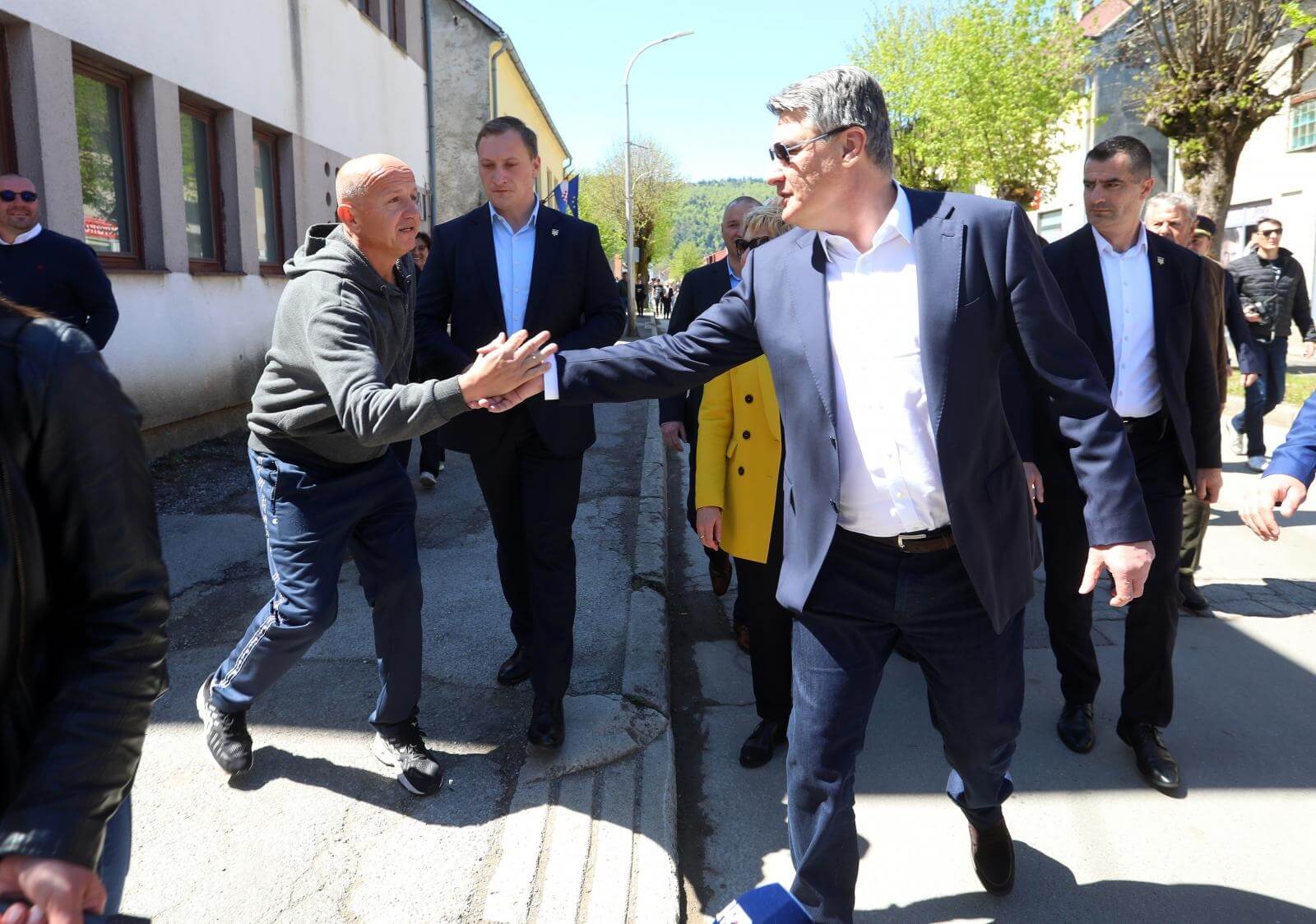
© Kristina Stedul Fabac/ PIXSELL
Croatian president Zoran Milanović visited Plaški county near Ogulin on Tuesday to visit the newly-build Firefighter's home and Plaški Culture Home. The locals welcomed president Milanović with ovations, and many use the opportunity to handshake and take a photo with the president. As Večernji List reports, Milanović took the visit as an opportunity to comment on the hate speech incident at Borovo Selo. He stated that the President of Serbian National Council Milorad Pupovac and Croatian Prime Minister „should use the police, but they don't, they are causing incidents.
Highlights of the Week: Pula celebrating its liberation in WW2
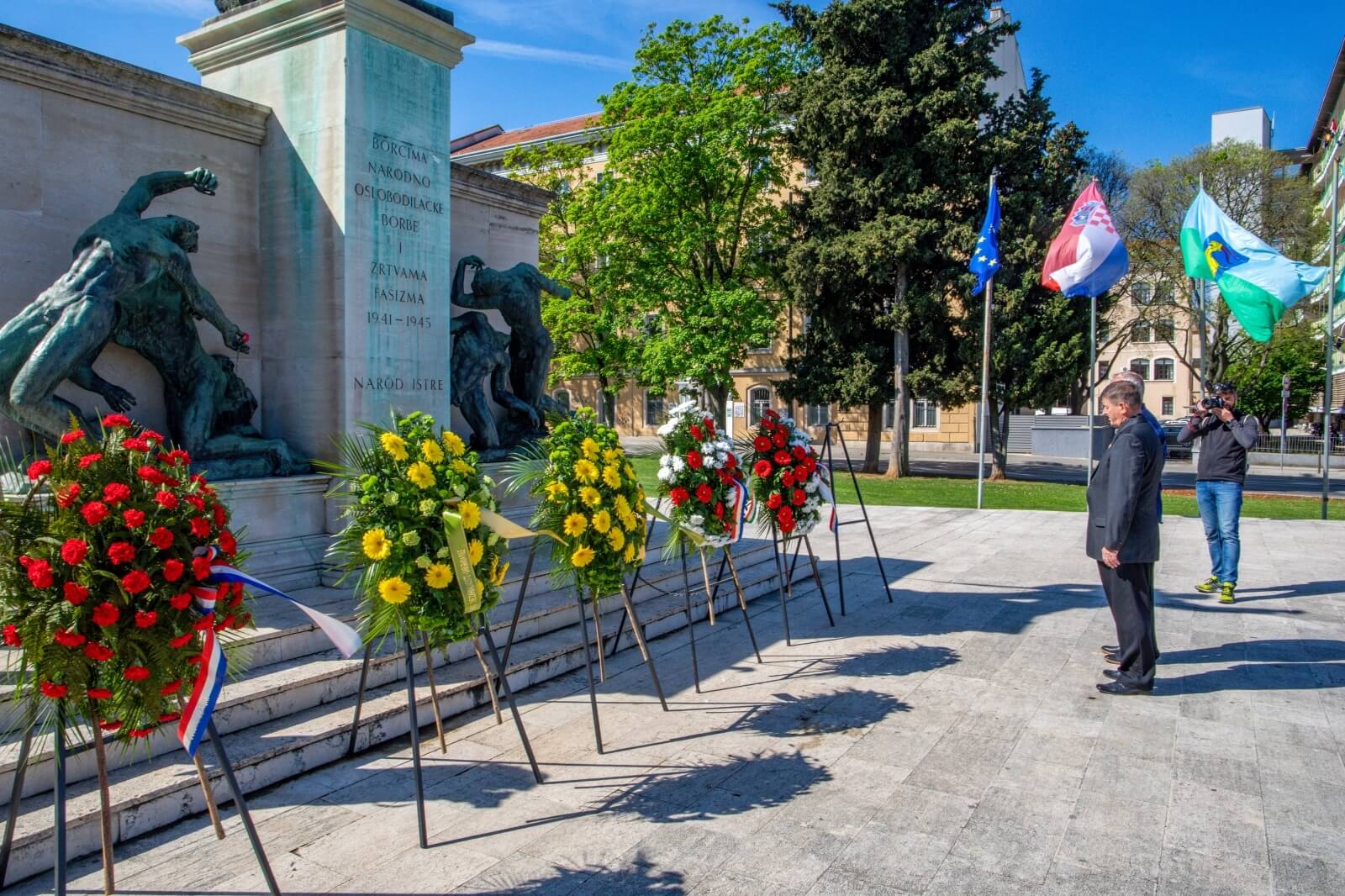
© Srecko Niketic/ PIXSELL
Pula celebrated its annual liberation day and the Pula City Day, marked on May 5. In Tito's park, the traditional commemoration to the fallen WW2 soldiers of Tito's partisan army saw Tiziano Sošić (president of Pula City Council), Elena Puh Belci (vice mayor of Pula), Aleksandar Matić (chief of the City of Pula Office) and Fabrizio Radin (vice-county ruler of Istria county) paid their respects. Representatives of associations of anti-fascist fighters and anti-fascist of the city of Pula were present too.
Highlights of the Week: Dinamo and Hajduk end with an even score 1:1
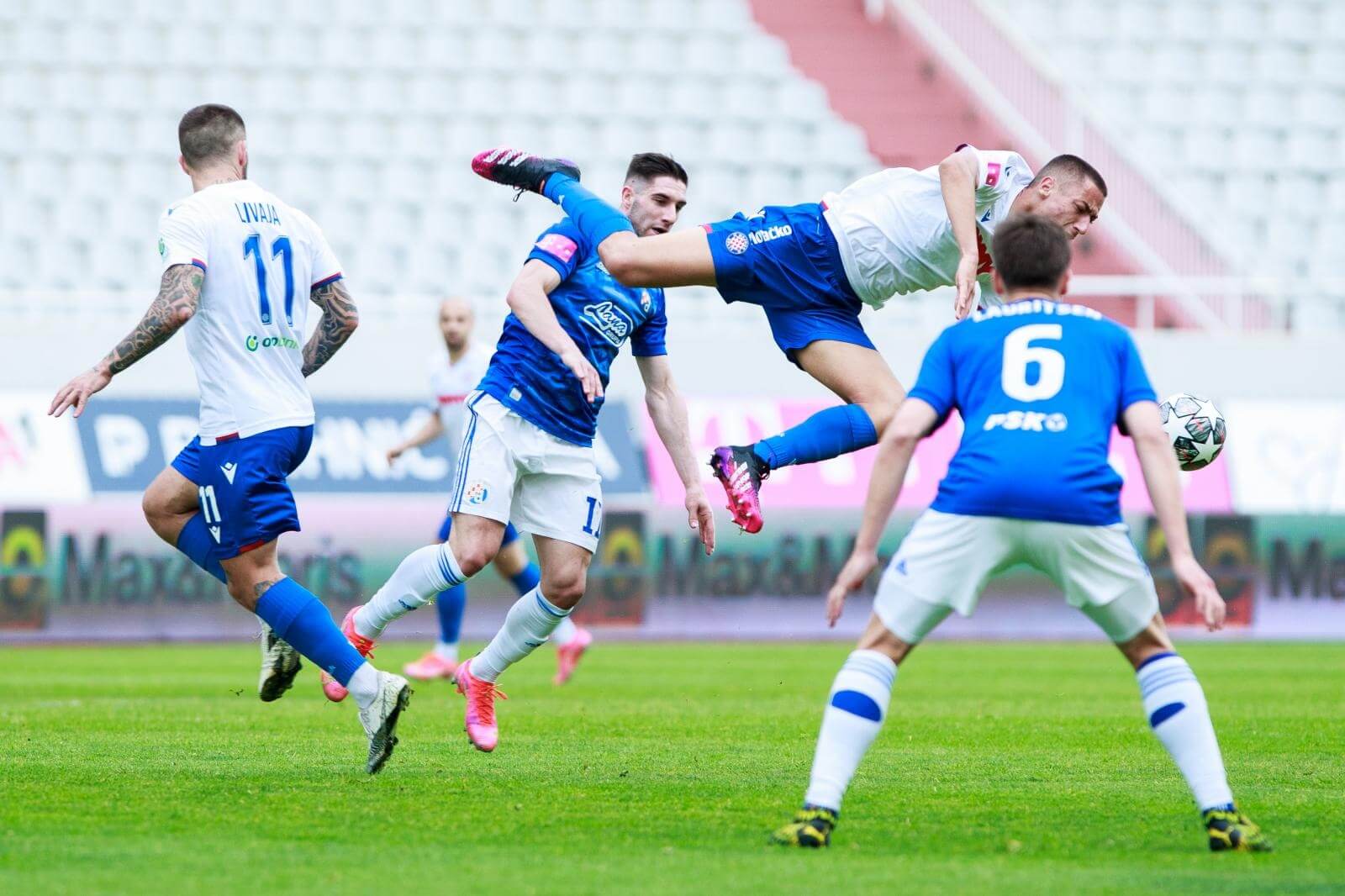
© Milan Sabic/ PIXSELL
Hajduk and Dinamo's eternal opponents played another game at Hajduk's home of Poljud Stadium in Split on Wednesday. The match was the 22nd round in Croatian First League, and fans couldn't wait for it as the game was postponed.
Hajduk opened the match well and had a chance to take the lead in the first 20 seconds. Kačaniklić received an excellent long ball and ran on the right side. He rushed into the penalty area and shot diagonally, but Livaković came out and closed his corner. Dinamo improved and took the lead in the 16th minute with a goal by Majer, and Livaja returned the favor in the 44th minute. Diamantakos hit the crossbar in the final minutes of the match but without success.
After three victories in the previous three clashes with Hajduk this season, Dinamo failed to achieve maximum performance and almost mathematically secured the title but entered the last four rounds with a seven-point advantage over Osijek. The fail happened despite Dinamo facing Hajduk with the strongest possible lineup.
Highlights of the Week: Vaccination in Šibenik continues successfully
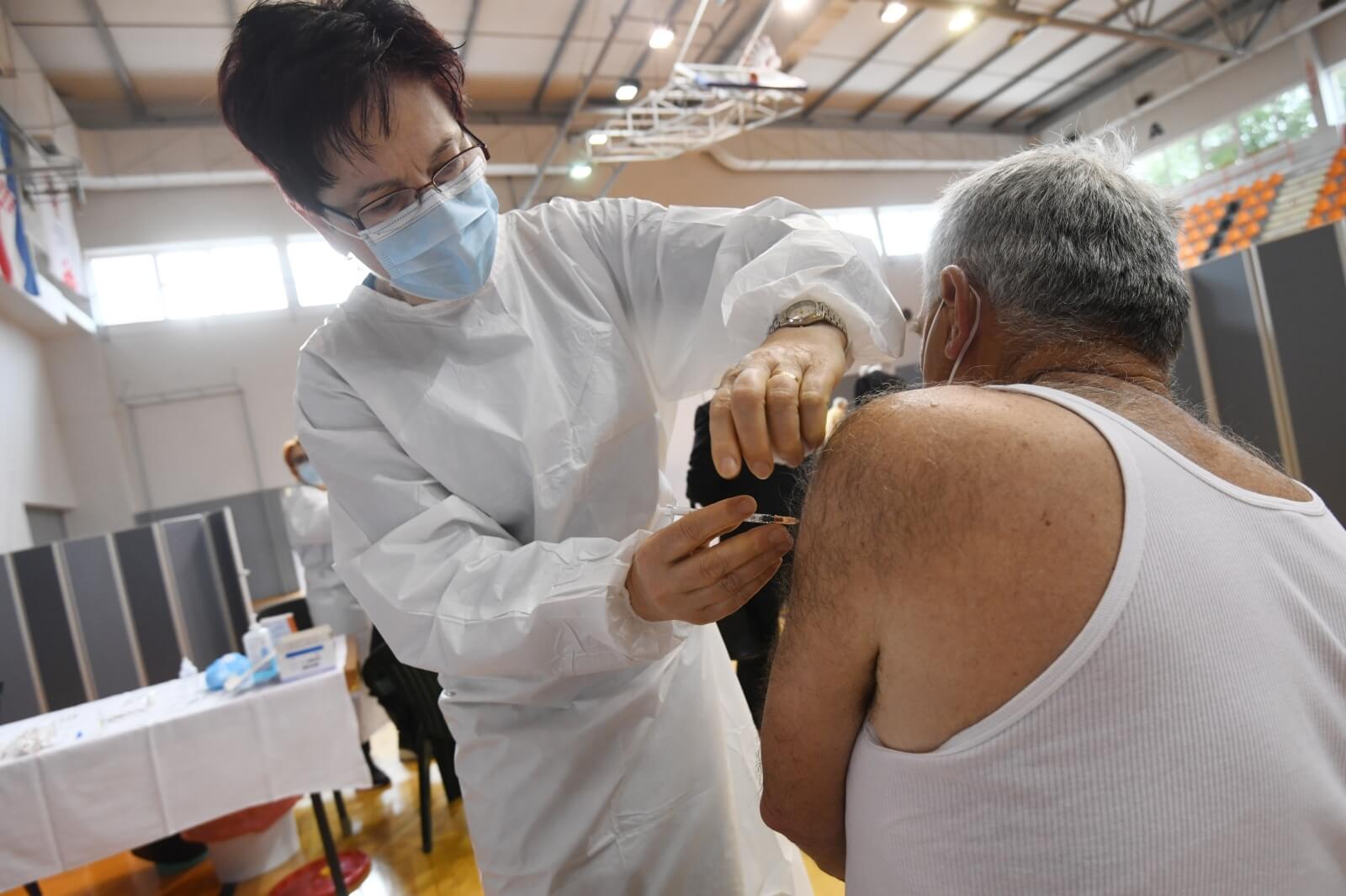
© Hrvoje Jelavic/ PIXSELL
Larger quantities of vaccines came to Šibenik on Friday, allowing vaccination in Baldeki Sports Hall to go without problems for the second day in the row. The vaccination attracts a number of citizens, so the area got quite crowded.
Highlights of the Week: Recycling yard in Zagreb on fire, reasons unclear
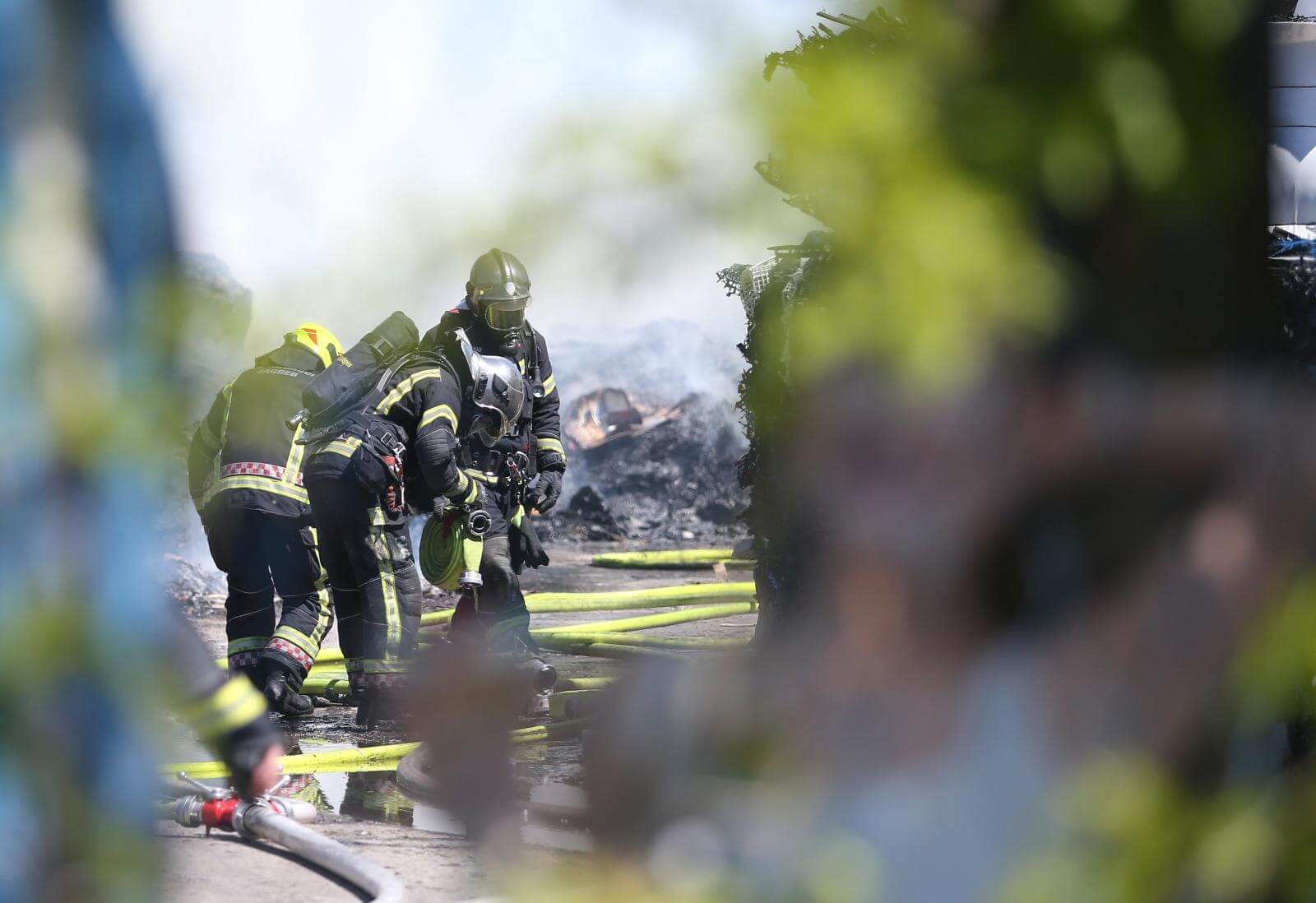
© Matija Habljak/ PIXSELL
Zagreb's recycling yard, located on Sarajevska Cesta in Novi Zagreb, was victimized by fire but quickly localized and put under control on Tuesday. The fire caught four containers, and 21 firefighters with six fire trucks rushed to the field. Police investigated the cause of the fire, but the reason is, for the moment, unknown. Firefighters managed to operate despite the lack of hydrants, and the thick white smoke was noticed by citizens who live in the buildings close to the yard, reported Večernji List.
To learn more about Croatia, have a look at our newly launched TC website.
For more about news in Croatia, follow TCN's dedicated page.
Croatia's Coronavirus Update: 2,007 New Cases, 41 Deaths, 2,337 Recoveries
ZAGREB, 30 April, 2021 - In the last 24 hours, of 9,282 tests performed for coronavirus, 21%, that is 2,007, have returned positive, the Croatian national COVID-19 crisis management team reported on Friday, underscoring that the portion of positive tests today was by seven percentage points lower than last Friday.
In the last 24 hours, the COVID-related death toll has increased by 41 to 7,081.
Currently, there are 14,507 active cases, including 2,237 hospitalised patients of whom 253 are placed on ventilators.
Since the first confirmed case of the infection with the novel coronavirus in Croatia on 25 February 2020, as many as 1.8 million tests have been performed showing that 332,183 people have contracted the virus. Of them 310,595 have recovered so far, including 2,337 recoveries in the last 24 hours.
There are currently nearly 34,000 Croatians in self-isolation.
Under the vaccination rollout plan, 872,726 shots against this infectious disease have been administered. The national COVID-19 crisis management team reported today that 682,757 people had got vaccinated. As many as 490,230 people have received the first shot, and almost 190,000 have been inoculated by both doses.
For more about COVID-19 in Croatia, follow TCN's dedicated page.
Croatia Logs 2,904 New COVID-19 Cases, 44 Deaths
ZAGREB, 28 April, 2021 - In the past 24 hours a total of 12,032 coronavirus tests were conducted in Croatia, with 2,904 returning positive while 44 people died in that period, the national COVID-19 response team said on Wednesday.
There are currently 14,604 active cases, with 2,278 patients who are in hospital, including 253 on ventilators.
The number of positive cases in the number of tests done in the past 24 hours is slightly above 24%, around 5% down from last Wednesday.
Since the first case of the disease was reported in February 2020, 327,737 people have contracted it, and 7,001 have died.
A total of 306,132 people have recovered, including 1,586 in the past 24 hours.
To date a total of 1,784,547 persons have been tested.
As of 27 April 812,984 doses of COVID vaccines have been administered, inoculating 639,564 people.
Of that number, 463,710 people have received the first dose and 173,420 have received both doses, while for 2,434 people it is not known which of the two doses they have received.
For more about COVID-19 in Croatia, follow TCN's dedicated page.
Health Minister Vili Beroš Says 230,000 Vaccine Doses to Arrive Weekly As of May
ZAGREB, 22 April, 2021 - Health Minister Vili Beroš said at a government session on Thursday that as of 1 May, 230,000 doses of COVID-19 vaccines would be arriving in Croatia on a weekly basis, calling on citizens to register for vaccination.
"The pressure on hospitals has been growing, notably by younger patients. The number of hospitalisations and patients on ventilators continues to grow. The average age of hospitalised patients is 66.7, 15% are people under the age of 50, 15% are people aged 50-59 while the rest are people above 60," said Beroš.
Third vaccination phase to start soon
The minister noted that the arrival of a larger quantity of vaccines during May and June would facilitate the process of vaccination.
Public health institutes have been instructed to include in the vaccination process all health institutions and private medical workers in the public health service network, and to organise, along with vaccination in family medicine offices, mobile vaccination teams and a sufficient number of vaccination points as well as to use civil protection, army and other resources in the process.
The vaccination plan for priority groups will be finished next week and the third phase of vaccination will begin, Beroš said.
So far, 902,670 vaccine doses have arrived in Croatia and 80% of them have been administered. A vaccination rate of above the average 14.2% has been achieved in age groups above 60, he said.
Prime Minister Andrej Plenković called on elderly people to register for vaccination, saying that a half of the country's adult population should be vaccinated by June 30.
"There will be enough vaccines, I call on all citizens to call their family doctors, register on the vaccination platform so that we can contribute together to health security," Plenković said.
"As many as 77% of people who have died of COVID-19 in Croatia since the start of the pandemic were aged above 70 and 93% were people older than 60. We call on all citizens who are above the age of 60, 70 to register for vaccination," the PM said.
The head of the national coronavirus crisis management team, Minister of the Interior Davor Božinović, said that there had been no changes to epidemiological restrictions at the national level, that existing restrictions had been extended, as had been most of those introduced by local crisis management teams.
For more about vaccines in Croatia, follow TCN's dedicated page
Croatia's Coronavirus Update: 2,106 New Cases, 42 Deaths, 1,877 Recoveries
ZAGREB, 20 April, 2021 - In the past 24 hours, 9,831 coronavirus tests have been performed in Croatia and of them 21.4%, that is 2,106, have turned out to be positive, the country's COVID-19 crisis management team stated on Tuesday.
The COVID-related death toll has increased by 42 to 6,643.
Croatia has currently 13,999 active cases, including 2,198 patients who are receiving hospital treatment and of them 213 are placed on ventilators.
As many as 30,534 people are self-isolating.
Since the outbreak of the infection on 25 February last year, 1,713,174 people have been tested for the virus. So far Croatia has registered 310,306 coronavirus cases, and 289,664 recovered patients, including 1,877 in the past 24 hours.
Since the beginning of this year, 698,032 COVID vaccine doses have been administered under Croatia's vaccine rollout plan. The press release reads that until 19 April, 556,969 people have been given shots against this disease. As many as 413,812 people have received the first dose of the two-dose vaccine, and 141,063 have been inoculated with both doses.
For more about COVID-19 in Croatia, follow TCN's dedicated page
The Croatian Chamber of Commerce (HGK) Requests Priority Vaccination for Shop Assistants, Builders, Undertakers
ZAGREB, 16 April, 2021 - The Croatian Chamber of Commerce (HGK) on Friday requested that trade and construction workers, as well as those working with infectious medical waste and at cemeteries, be placed on the vaccination priority list, since they are directly at risk from catching coronavirus.
Josip Zaher, the HGK vice president for commerce and financial institutions, pointed out that those employed in trade, especially those working in shops, were much more exposed to the possibility of getting infected with coronavirus, that is, the possibility of the infection potentially spreading is higher.
"The tourist season is coming, and retailers are very important in the overall tourist offer of a country, especially when we know that the percentage of the population vaccinated will be among the most important data for travellers when assessing a destination's safety," Zaher said.
He said that a total of 205,655 people were employed in trade in 2020, or 15.2% of all employees in legal entities. The largest number of employees was in retail trade, 115,352.
For more about vaccination in Croatia, follow TCN's dedicated page.
Croatia Will Have Received 1.8 Million Pfizer COVID Doses by 1 July
ZAGREB, 16 April, 2021 - Croatia can expect the delivery of 1.8 million Pfizer doses against coronavirus and the inoculation of 55% of the population against this infectious disease until 1 July, the national COVID-19 crisis management team said on Friday.
Representatives of the team said at a news conference that Croatia has registered a 32% weekly rise in new cases, and that the share of positive tests was 29.2% on Friday.
In terms of the incidence rate, Croatia currently ranks 21st in the European Union and in the terms of the death rate, it ranks 17th, Croatia's chief epidemiologist Krunoslav Capak told the news conference.
"Pfizer has ramped up its delivery of vaccines for us. We Will have received a total of 1.805 million doses of this vaccine by the end of June," Capak said adding that he expected more than half of the population to get COVID shots before 1 July.
The head of the Zagreb-based Fran Mihaljević hospital for infectious diseases, Alemka Markotić called for additional caution before people get vaccinated.
"It would be a pity to develop serious symptoms of this disease now when we can be vaccinated soon," she said.
She said that the British variant of the novel virus was currently dominant in the European Union.
Markotić said that her hospital has been full with patients for days and that she was particularly concerned with the difficult condition of patients aged between 25 and 40.
Health Minister Vili Beroš reassured the general public that there would be enough vaccines for everyone who wishes to be immunised against this infectious disease.
Beroš dismissed accusations from some media outlets and Opposition lawmakers that the Cuspis company, which is allegedly owned by a family friend, had been favoured by the Health Ministry in the task to design the Cijepise (Get Vaccinated) platform.
Beroš said that all data concerning this issue were available on the ministry's website.
Beroš went on to say that the company had been hired by the ministry for some other tasks before he became an assistant minster and before his ministerial term.
For more about vaccination in Croatia, follow TCN's dedicated page.


